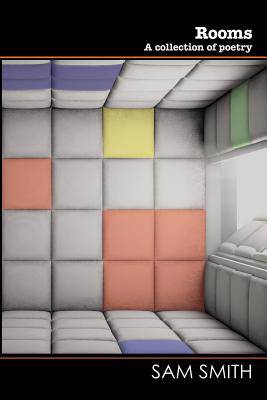
- Afhalen na 1 uur in een winkel met voorraad
- Gratis thuislevering in België vanaf € 30
- Ruim aanbod met 7 miljoen producten
- Afhalen na 1 uur in een winkel met voorraad
- Gratis thuislevering in België vanaf € 30
- Ruim aanbod met 7 miljoen producten
Zoeken
€ 12,95
+ 25 punten
Omschrijving
As our world has become segregated, separated; as our daily lives have become fragmented, subdivided into a variety of sub-contexts, so have our thoughts and thought processes. Now, much as political cartoons bring together two topical events for wry humour's sake, so does poetry (a school of) bring together two, or more, unrelated and apparently disparate images, or ideas, in the attempt to make a single whole poem. This method has been the self-confessed modus operandi of the psychologist-poet Tomas Tranströmer. Part of the pleasure in reading him, for me, has been to try to separate out the two foundation ideas/images, then to see how he crafted them together to make something other. Using this working method Tomas Tranströmer is usually successful (or he only publishes his successful attempts.) All too often, however, when other poets try to forge connections where there are none it leads only to non-sequitor poetry; which may be of great creative delight to their author, but can be as meaninglessly tedious as any other list for their reader. Because, although the world's images may come to us piecemeal, fragmented, still we have a sense of where we are in relation to those images; and we, each of us, imposes our own order-perception upon them. Which is why fractal poetry has a false causa loci - it is not how we perceive. My intention with the 'Room' poems, with each poem and with the series as a whole, was to emphasise the insularity of each our lives and each part of our lives, and to do it transparently, having within each poem's frame distinctly separate and different images and concepts, the contents/activities described within the room set against the 'notes for reading' at their end. My hope was that some synergistic other would emerge out of this pairing. That didn't happen. Instead it led to something else, which can best be described by referring to Damien Hirst's use of titles for some of his works. One looks at the object he has made for display, then down to the title that Hirst has given it, then back to the object to see what he could have meant by applying such a title to such a work. Something similar seems to happen with the reading of the 'Room' poems. One reads the description of the room's contents/activities, then the 'notes for reading'; and, the mind wanting to make sense of the pairing, one's eye is almost forced back up the page to re-read. So much for the creative process and outcome. Regards the process of publication.... The Room poems have been widely published in magazines. Although some editors didn't understand that the 2 parts formed a whole and insisted on publishing only the room part, while one wanted to publish only a batch of the 'notes for reading'. While yet others enthusiastically published batches of the whole poems; and the late, and much missed, Ian Robinson, put out an Oasis broadsheet of 11 Rooms. Before that, however, Stuart Rosamond had invited me to give a talk on the Room poems (and others) to Fine Art students at the Somerset College of Arts and Technology. The students then mounted an exhibition of the work of theirs that had grown out of the talk/reading. Which led, several years later, to Sarah Ward, now studying print at Cardiff University, to contact me through another publisher seeking my permission to use some of the Room poems as a basis for some of her final year work. It didn't stop there of course. The collaboration once begun led to other poems being considered for other of her projects, a touring exhibition/reading... And, given the stimulus provided by Sarah's interest, I began writing more Room poems. I also decided that it was about time all the Room poems were gathered together in a collection.
Specificaties
Betrokkenen
- Auteur(s):
- Uitgeverij:
Inhoud
- Aantal bladzijden:
- 78
- Taal:
- Engels
- Reeks:
Eigenschappen
- Productcode (EAN):
- 9781789420746
- Verschijningsdatum:
- 27/02/2019
- Uitvoering:
- Paperback
- Formaat:
- Trade paperback (VS)
- Afmetingen:
- 152 mm x 229 mm
- Gewicht:
- 127 g

Alleen bij Standaard Boekhandel
+ 25 punten op je klantenkaart van Standaard Boekhandel
Beoordelingen
We publiceren alleen reviews die voldoen aan de voorwaarden voor reviews. Bekijk onze voorwaarden voor reviews.











